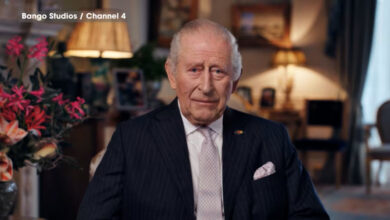
Rates of colon and rectal cancer are rising sharply among young and middle-aged adults but doctors have yet to pinpoint why, researchers said Tuesday.
The report in the Journal of The National Cancer Institute found that Generation X and millennials face anywhere from twice to four times the risk of colon and rectal cancer as their baby boomer counterparts.
The study did not uncover a reason for the change. Experts say colon and rectal cancer can be inherited and can also be influenced by the high-fat, low fibre diets that are common in the Western world.
“Our finding that colorectal cancer risk for millennials has escalated back to the level of those born in the late 1800s is very sobering,” said lead author Rebecca Siegel, a researcher with the American Cancer Society.
“Educational campaigns are needed to alert clinicians and the general public about this increase to help reduce delays in diagnosis, which are so prevalent in young people, but also to encourage healthier eating and more active lifestyles to try to reverse this trend.”
The study found that colon cancer incidence rates increased by one to two percent per year from the mid-1980s through 2013 in adults ages 20 to 39.
For adults aged 40 to 54, rates increased by 0.5 to one per cent annually from the mid-1990s through 2013.
For rectal cancer, the rise has been more pronounced, climbing about three percent per year from the mid-1970s onward in people aged 20 to 39.
In adults between 40 and 54, rectal cancer rates increased by two per cent per year from the 1990s to 2013.
In general, rectal cancer rates in adults age 55 and older have been declining for the past four decades. Three in 10 rectal cancer diagnoses are now made in patients under 55.
Screening for colorectal cancer is generally not recommended for people under age 50 unless they have a family history of the disease.
Siegel said current screening practices might deserve a second look, given that some 10,400 new cases of colorectal cancer were diagnosed in people in their 40s in 2013.
“These numbers are similar to the total number of cervical cancers diagnosed, for which we recommend screening for the 95 million women ages 21 to 65 years,” said Siegel.
Her study was based on patient data on more than 490,000 people in the US Surveillance, Epidemiology, and End Results (SEER) programme registries.




